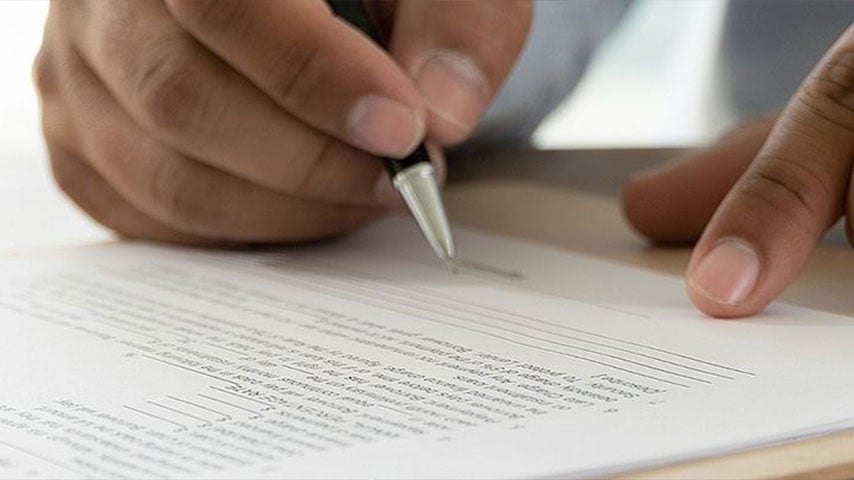Share this
4 Tips How to Write the Best Engineering Cover Letter
by Career Guide on May 16, 2023 4:03:16 PM
Get hired with these job-winning strategies. A great resume can get you a job interview. A great cover letter can help you land the actual job.
By Jeff O’Heir
The resume serves as a summary or snapshot of experiences and skills tailored to match a specific job description. On the other hand, a cover letter is a way to show off and spotlight specific skills a potential employer is looking for, such as the abilities to write and communicate. It’s also the place to demonstrate real knowledge about the company and the reasons why you want to work there.
Think of the resume as a wave to someone in the crowd you hope to meet. The cover letter is the handshake or embrace you give someone when you finally meet them. It’s what connects the candidate to the opportunity and the company that’s offering it.
“The cover letter is an opportunity to express a sufficient level of experience and knowledge regarding a certain position and a desire to join a specific organization,” said Matt Ishler, associate director, career counseling, at Penn State. “It's really a chance to express that this is how I see my education experience and background coming together to support me being successful in this role that I am applying for.”
Anyone who has actively looked for a job during the last five years knows that most companies use some type of resume software (the inhuman and bloodless tool better known as The Resumator) as a major part of its recruiting and hiring process. The Resumator will discard any resume that’s missing key words and phrases directly related to the job description.
There’s a strong chance, though, that once a candidate’s resume makes it through the initial screening process, a real-life human will actually read a cover letter, or typically the first three sentences before deciding to continue reading or move to the next one. Those first few lines better be good.
Back in the day, it was acceptable in the first paragraph of a cover letter to give your name, degree and how you learned about the opportunity. No more. Hiring managers, human resources personnel or anyone reading that letter want the pertinent, relevant and, hopefully, exciting information in less time than you can say “Next candidate.”
“It’s important to attract someone's attention early in the letter,” Ishler said. “I think that’s done best by summarizing the applicant’s strongest qualifications--an internship, an engineering capstone project, a design or problem-solving experience--and then relating that to the organization the applicant wants to work with. Attract their attention early but highlighting your most relevant experiences and areas of involvement.”
Potential employers, however, are looking for more than related skills and experiences in that opening. They are looking for a candidate’s ability to write, communicate and present ideas effectively. “That has always been a criteria, but it has increased in its importance,” Ishler said. “The cover letter is seen as an indicator of those skills.”
Needless to say, make sure the letter is free of any spelling and grammatical errors. And keep the length of the letter to three or four paragraphs, or no longer than three-quarters of a page. Here’s a list of Ishler’s other top tips and strategies to create a cover letter that will impress the most critical hiring manager.
1. Personalize the Letter
Don’t use the same letter over and over; it will be too broad. Be specific.
“I typically encourage the student to name the organization, to name the position or the type of area in the organization they want to join, and to speak to some of the qualifications of the job description: technical skills, project-specific skills, my experiences in product design, my experience doing a kind of quality analysis work,” said Ishler. Write about how your work as an engineer over the summer has prepared you to be successful in an internship or a full-time engineering role with the company. Talk about how you connect with the company’s values of excellence in engineering; how you work cohesively as a team and provide the highest level of service. And then go into how you lived out those values in some of your experiences. That requires some thought and effort and time.”
2. Don’t Repeat Phrases Already Mentioned in the Resume
“Think of the cover letter as being a place to elaborate and expand upon, and not simply to repeat. Don’t just list out the resume in paragraph form. Truly take me into some of those experiences: ‘When working on this engineering project, I encountered these challenges and to meet those challenges I learned lessons in areas A, B and C. Here are the ways I've applied the theory I've learned in thermodynamics. What I learned through this project, where I was involved in designing and testing a product, would support me in working as an engineer with your organization.’ Elaborate on and connect experiences and accomplishments from your resume to the organization and the position without repeating the exact language in the resume.”
3. Demonstrate You’ve Researched the Company and Position
“It’s not just writing about me, me, me. It is writing as well to show that you’re making an informed choice about applying to work at this organization. Mentioning something about the organization's current or recent accomplishments, or their upcoming work, or something positive from their website or something that’s been in the news about the organization further personalizes the letter and shows strong intent. And it shows that this applicant is serious. It shows that I took the time to learn a little more about the engineering unit at the organization and incorporated some of what I learned in my cover letter. A few sentences about the organization and why it stands out positively among others in a similar industry or field would be great to see in a cover letter.”
4. Ask For Something
Conclude the letter with some kind of a request for further action: I would like to meet with you for an interview or I would like to speak with you for an informational interview. The letter should close with some kind of call to action.
Jeff O’Heir is an independent writer in Huntington, N.Y.

How To Create an Elevator Pitch for Your Job Search

5 Signs You Need a Professional Resume Review

Should you quit your job before you have another lined up?

There’s More to a Job than Money


